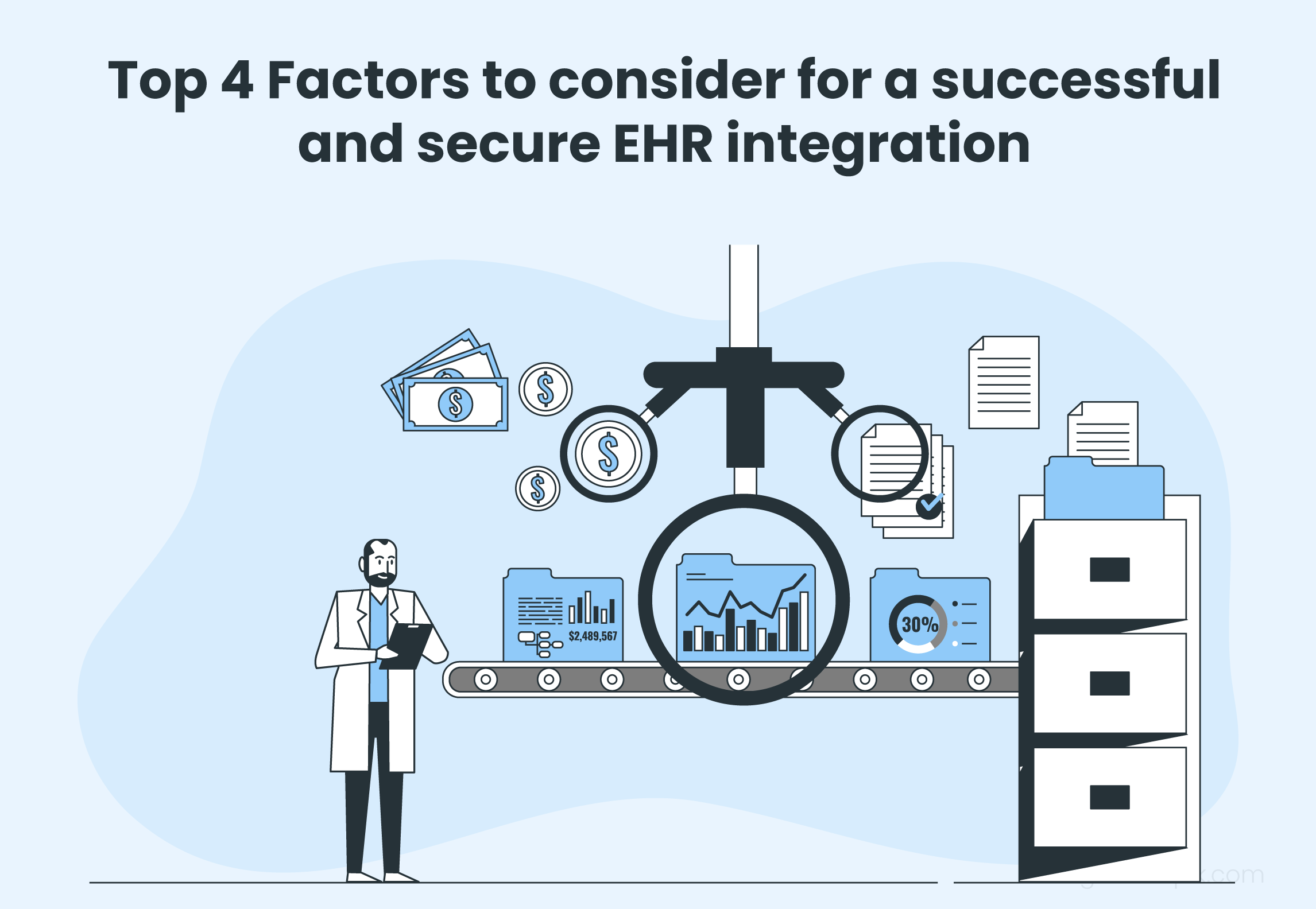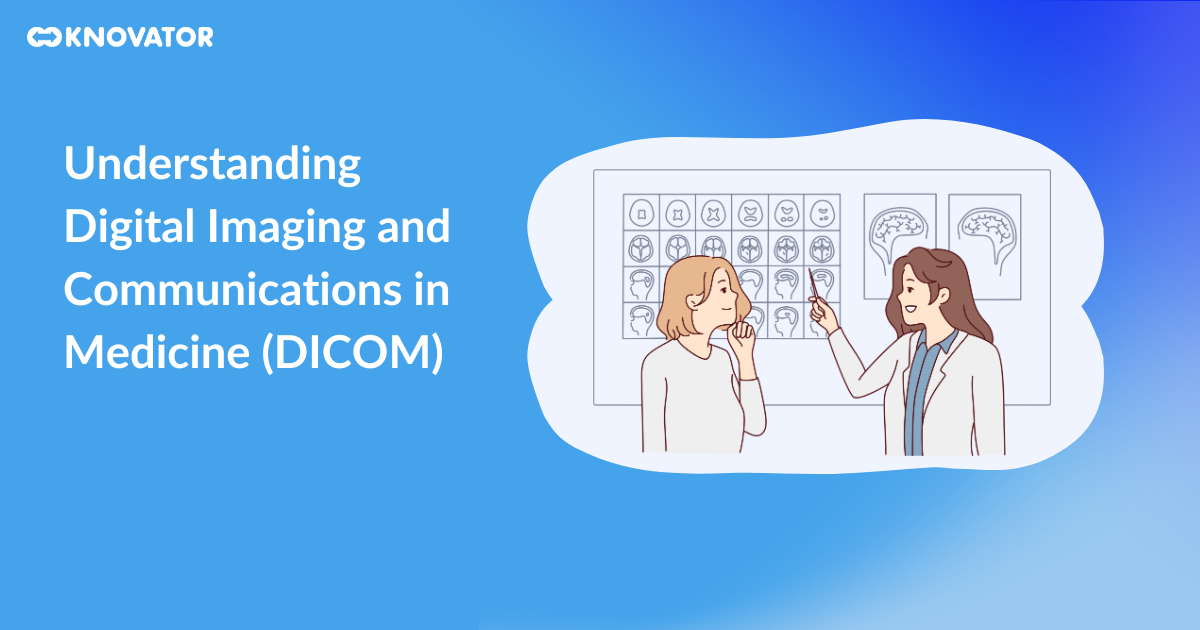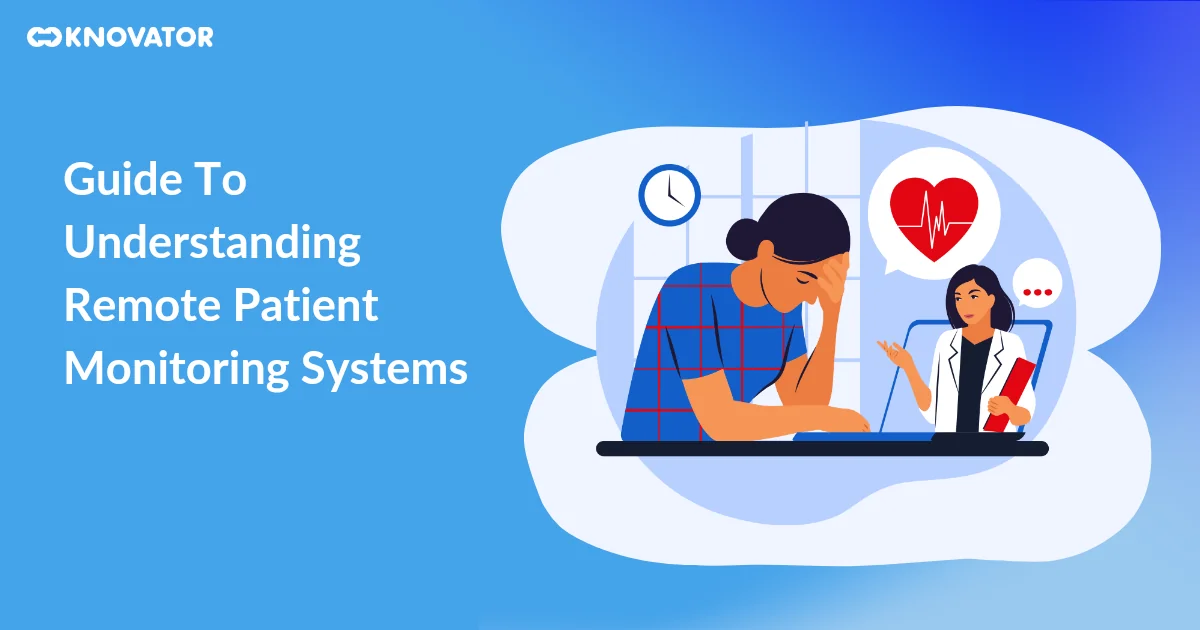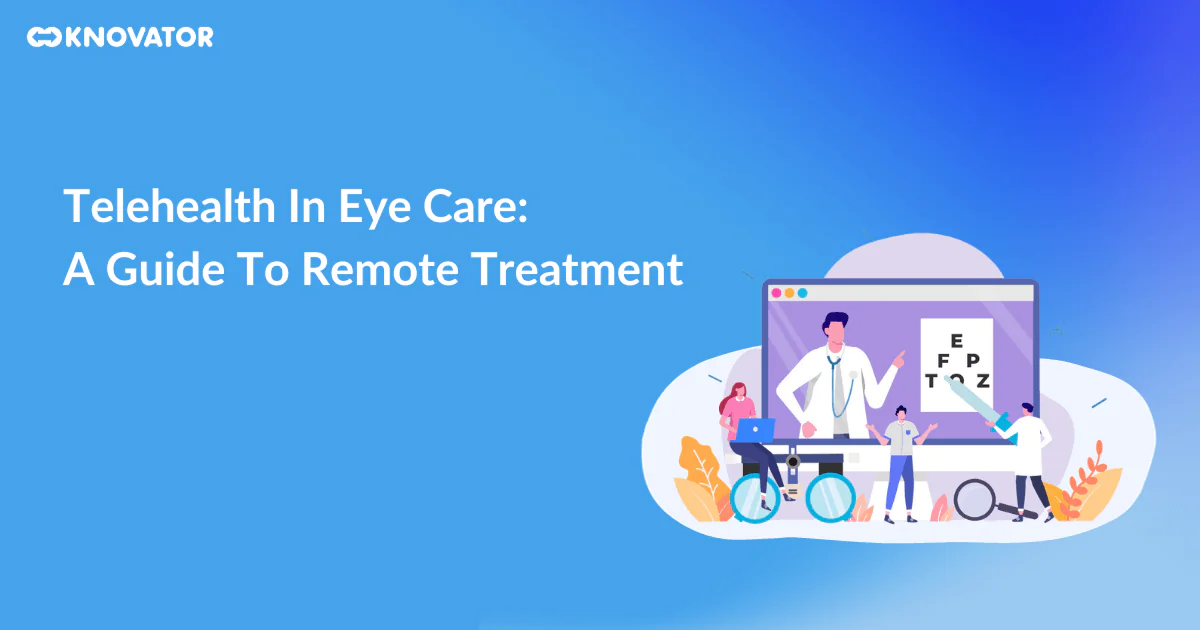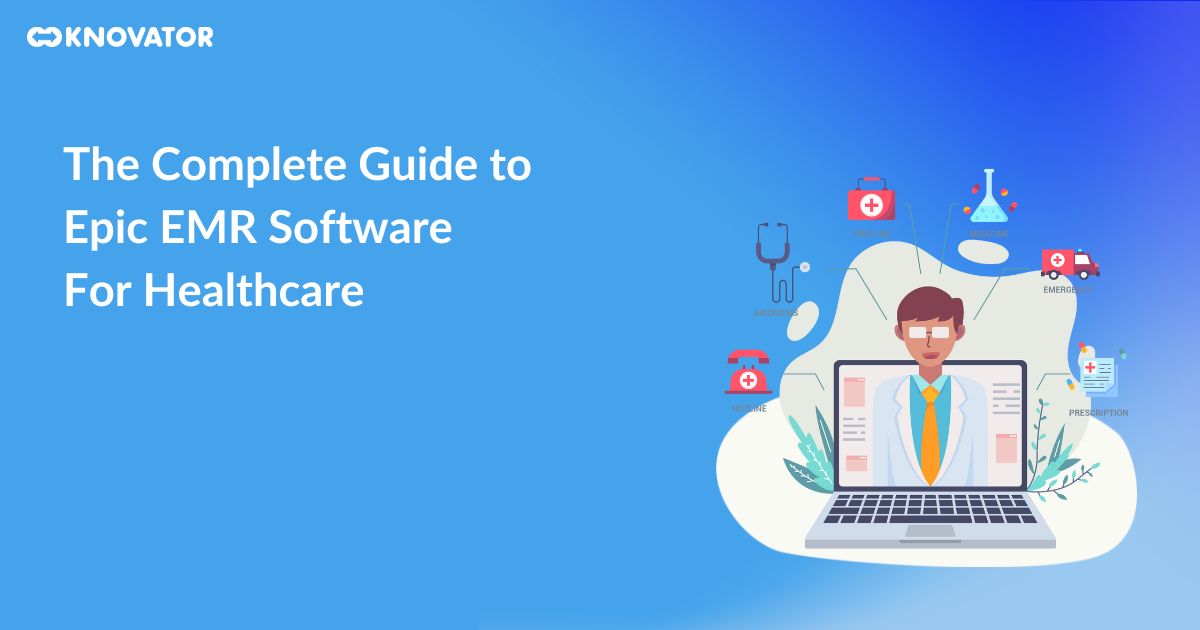Healthcare professional community struggles with maintaining patient records, prescriptions, appointments, medicine inventory and authorization records on paper. It’s time-consuming and valuable information can be lost, compromising HIPAA guidelines. Moreover, manual errors are prone to happen and can be expensive and fatal in US Healthcare.
You should hire an EHR implementation service provider to develop a central Electronic Health Records software that can hold information from appointments, invoicing, e-prescriptions, lab records, case papers, prior authorization, insurance documents, and more in one place.
Let Knovator Technologies create a centralized repository of insurance documents, lab records, prior authorization and more.
Let’s learn more about EHR and then go into the further details.
Also Read : Benefits of Buy Hospital Automated Prior Authorization Solution
What is EHR?
Electronic Health Records or popularly known as EHR is a digital footprint of your health records achieved through the transformation from paper to electronic records. EHR provides role-based access to patient information and other sensitive records to make informed decisions and save time, cost. A healthcare IT system built on top of EHR principles is commonly known as an EHR system.
A robust EHR system integrates complete healthcare information including patients’ appointments, lab records, insurance data, diagnosis, medications, treatment plans, follow-up dates, images, results, and case papers. An EHR implementation service provider will also use Machine Learning and Artificial Learning [AI/ML] to build analytics and reports on this data for a medical informatics team.
There are other benefits of EHR like streamlining clinical workflow with automation of standard processes, quick and secure sharing of information between 2 care providers, and automatic and updated access to patient and medical records.
As you are aware of EHR and an EHR system, let’s deep dive into 5 important business benefits of EHR.
Top 5 benefits of EHR
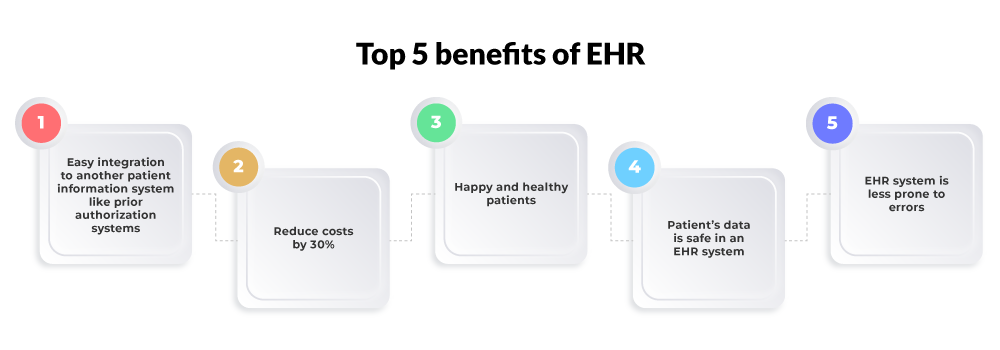
- Easy integration to another patient information system like prior authorization systems – A EHR system is built on top of HL7 standards. It’s easy to integrate external systems like integrating to a payer database or a clearinghouse site to extract patient prior authorization by diagnosis code, eligibility, and claim status into an EHR system. Before integrating these external systems, please consult with the HL7 integration process with an experienced EHR implementation service provider.
- Reduce costs by 30% – EHR software combines data points from different systems and digitizes administrative work by automating redundant billing, claim management, booking acceptance, and other keyboard and mouse-driven processes. Professionals can concentrate more on improving health outcomes, attending to more patients, and delivering better services instead of finding patient files or filling paper forms and storing them. With 24/7 role-based access to patient information through desktop, web, and mobile devices, records can be accessed anywhere and anytime.
- Happy and healthy patients – EHR system boosts healthcare professionals to provide a high quality of care and treatment to patients who are suffering especially from chronic diseases. For self-treatment plans, patients can access documents, videos, and tips prescribed by a physician or physiotherapist [in case of muscle or body fractures].
With quick access to lab reports, case papers, and treatment costs and seamless integration with a claim processing system, there is an overall improvement in care delivery. This increases patients’ health and makes them satisfied and confident about hospital services.
- Patients’ data is safe in an EHR system – A EHR system is fully HIPAA and HL7 compliant making it impossible for potential data breaches. It safeguards patient and hospital records with role-based secure access only.
- EHR system is less prone to errors – A EHR system is developed taking into consideration business scenarios and rules. It automates paper processes around medical billing and patient record keeping. Professionals will make fewer to zero mistakes in issuing duplicate tests, generating double bills, and record mismatch.
Now that you know the benefits of a successful and secure EHR integration, let Knovator Technologies plan and develop your prior authorization system.
Although they are advantages of using an EHR system, there are challenges associated with its implementation and integration
Also Read : Benefits of Remote Patient Monitoring
4 blockers to EHR integration
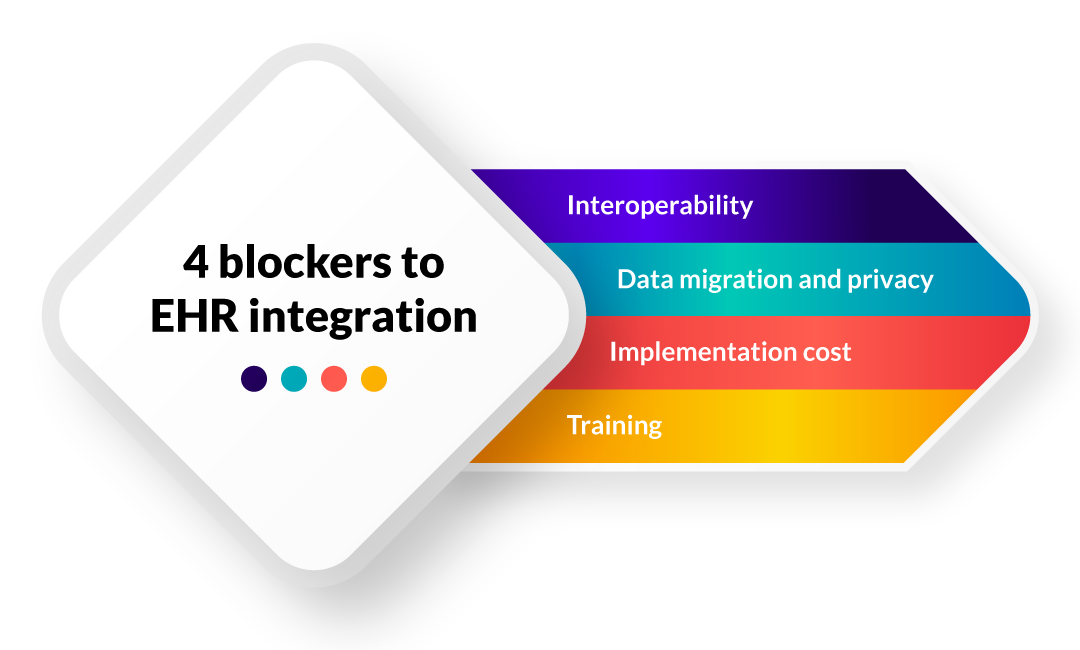
- Interoperability – EHR software must be capable of exchanging patient and health data seamlessly with other integrated software. This exchange must be secure, seamless, and successful to ensure accurate data is presented to users.
- Training – Staff training is important in the success of implementing EHR software. You can use the expertise of an EHR implementation service provider to create a user manual and video tour of the EHR software targeted to the staff’s interest.
- Data migration and privacy – Exporting paper records from multiple sources into a single EHR software requires time and patience from IT and hospital staff. It needs to be planned in milestones, otherwise it will become a nightmare for everyone. Moreover, if there is a data leak, repercussions can lead to legal battles.
- Implementation cost – Implementing EHR software can be costly. You may need 3rd party software related to prior authorization systems if you represent a lab and prior auth is required before processing a claim. It’s important to consult with an EHR implementation service provider and prioritize work items in EHR software.
So, now as you know the challenges associated with implementing an EHR software, it’s time to deep dive into the 4 factors that can overcome the above challenges.
4 Key Factors to successful EHR integration
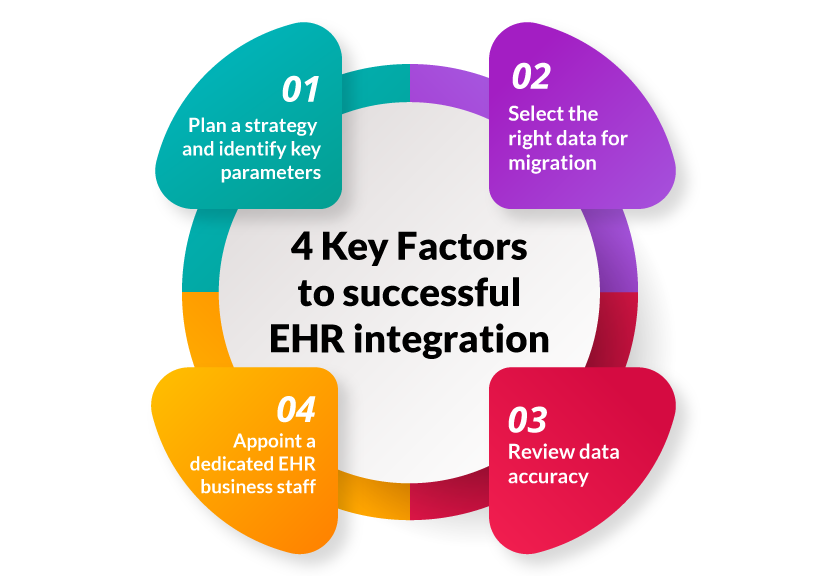
- Plan a strategy and identify key parameters – The first step is hiring an EHR implementation service provider with ample experience in developing healthcare software. You can take a free consultation and divide your complete project into phases and prioritize it by your budget.
A provider can help with detailed documentation with costs related to IT staff and server costs to deploy your application. A provider will also include risks and challenges to ensure that they are mitigated in advance.
Knovator Technologies can help you develop EHR/EMR and prior authorization systems for your healthcare business. Moreover, the EHR implementation service follows HL7 and HIPAA standards in implementing medical software to ensure your integration and data is safe and secure.
If full interoperability is an issue with existing systems, it’s time to consult with Knovator Technologies. We can customize the healthcare software development or you can use our prior authorization system software.
- Select the right data for migration – You may have 20 years of medical data to digitize into EHR software. However, that will increase your costs and scope of the project. You may do a workshop internally to decide the size of the data that will be digitized and available in an EHR software.
- Review data accuracy – During implementation, IT staff will perform manual and other forms of testing to ensure data is accurate. You must create a set of rules and test cases to help IT staff audit data and ensure it is accurate. It is good to start by using test data and then run audits on live patient data.
- Appoint a dedicated EHR business staff – You are not done with simple migration.
From time to time, new data will come and you need a business staff to audit and report any anomalies before it goes live into the software.
Also Read : Top Telehealth Business Ideas
Conclusion
Knovator Technologies can help you overcome the above challenges and in successfully integrating the EHR system. EHR integration eliminates issues in handling manual data. There are pros and cons to implementing EHR software. However, it is the need of the hour. Take a free consultation with Knovator’s EHR implementation services, plan your implementation and integration and run a successful medical business.
Book your free consultation with our EHR implementation services team to know how we can help.

